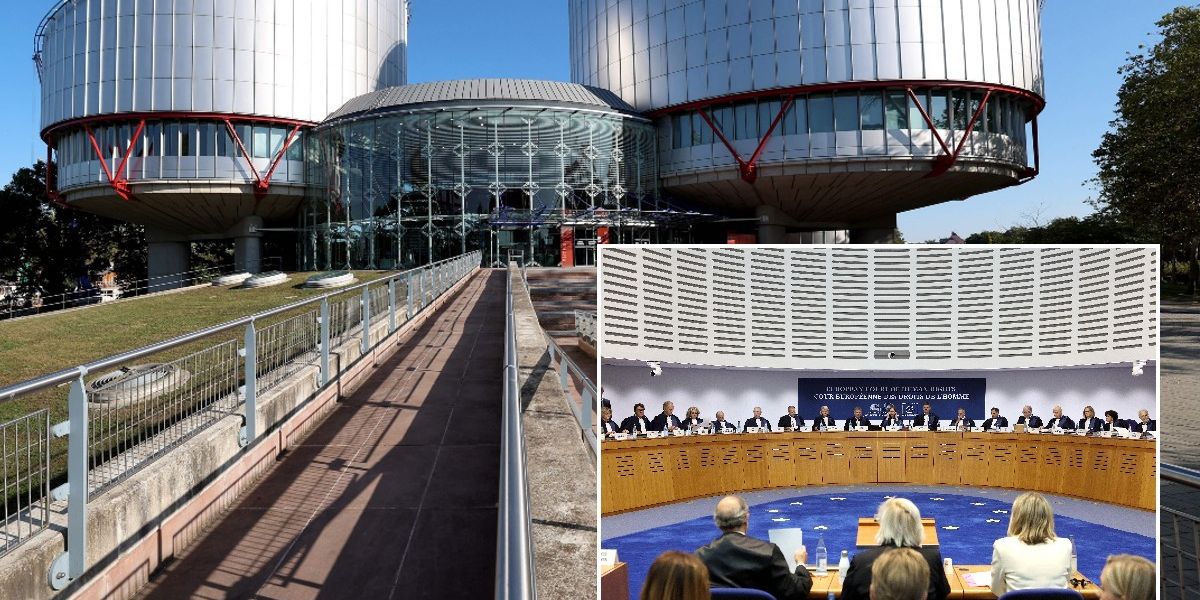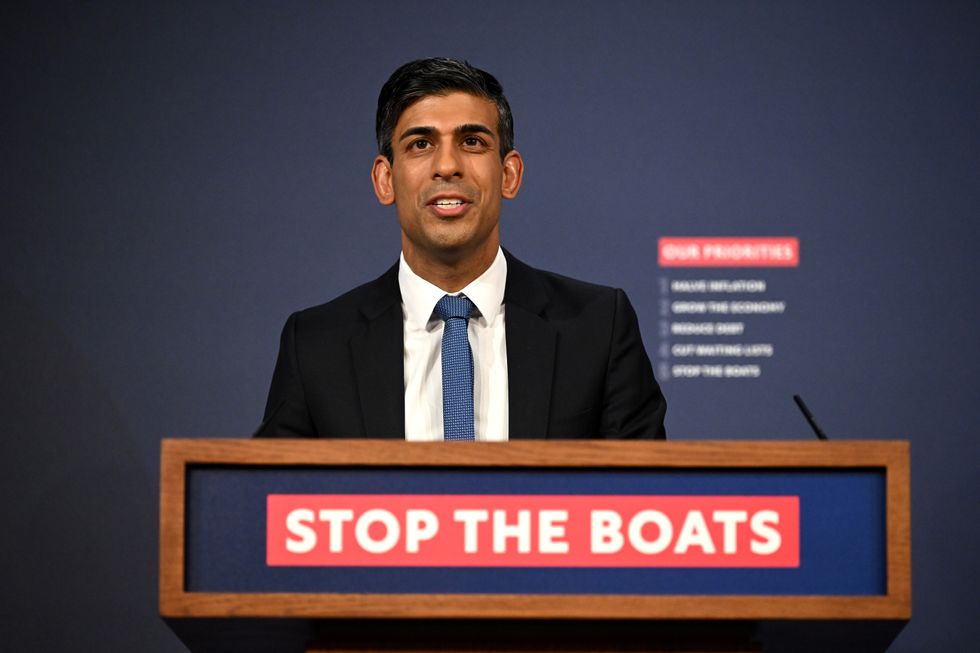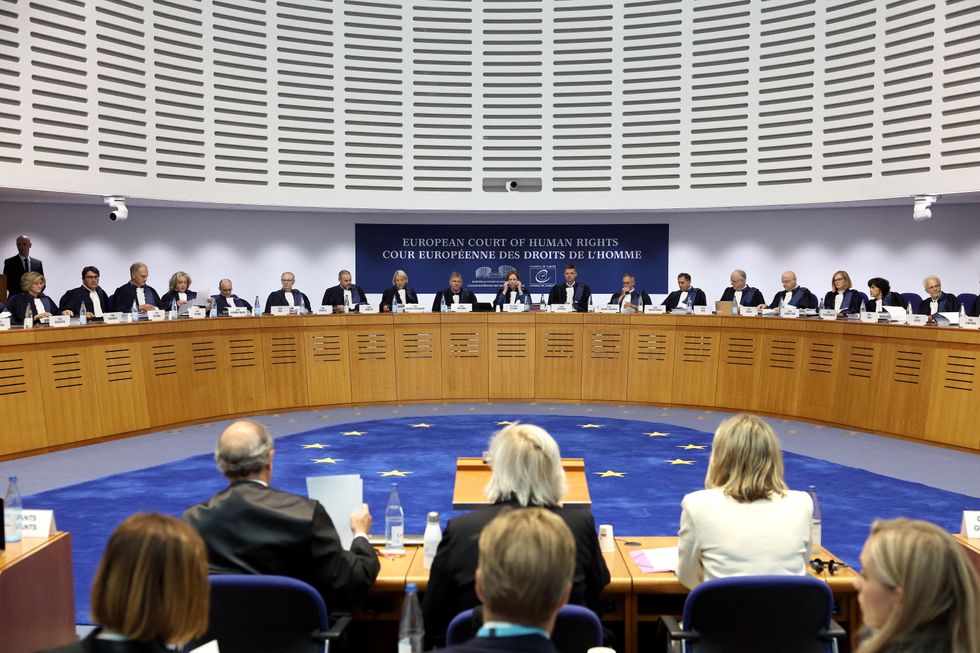
 Press Releases
Press Releases 
As a descendant of Holocaust survivors, the European Convention on Human Rights (ECHR) has held profound significance for me. It has stood as a beacon of hope, born out of the ashes of World War II and the atrocities of fascism. It was meant to ensure that the horrors endured by my ancestors would never be repeated.
Yet, despite its noble intentions, the time has come for the UK to bid farewell to the ECHR. It is not a decision I take lightly, but one that I believe is necessary to safeguard the sovereignty and security of our nation.
This week the ECHR ruled that the Swiss government violated women’s human rights by failing to take adequate action on climate change. While this decision may seem remote to British shores, it highlights a concerning trend that should prompt the UK to reconsider its ties with the ECHR.
The ruling, which held the Swiss government responsible for its inaction on climate change, raises serious questions about the jurisdiction and reach of international courts. By allowing a foreign entity to dictate domestic policy, the ECHR is encroaching upon national sovereignty—a principle deeply ingrained in British history and law.
 Rishi SunakPA
Rishi SunakPAThe Magna Carta, signed in 1215, established the foundation of modern legal principles in Britain, including the idea that the monarch is subject to the law and that no one is above it. This landmark document laid the groundwork for the development of British common law and the protection of individual rights. Fast forward to the present day, and we find ourselves in a precarious situation where decisions impacting British citizens are being made by unelected judges in a distant court.
The ECHR’s ruling on Switzerland sets a dangerous precedent, suggesting that nations can be held accountable for their environmental policies on a global scale. While addressing climate change is undoubtedly important, it is a complex issue that requires collaborative efforts at the international level, not unilateral decisions made by foreign judges.
Britain’s relationship with the ECHR has long been a contentious issue, with critics arguing that it undermines national sovereignty and democratic principles. As a former advocate for Britain’s membership in the ECHR, I find myself compelled to reassess my stance in light of recent events. What once seemed like a bastion of human rights protection has now morphed into a tool used by foreign potentates to thwart the will of the British people.
The ECHR, once viewed as a safeguard for individual freedoms, has become a hindrance to the democratic process. Instead of upholding the principles of justice and fairness, it has become a playground for unelected, unaccountable judges who show blatant disregard for the concerns of Britons.
MORE AGENDA-SETTING OPINION:
Take, for instance, the issue of illegal immigration across the English Channel. As migrants come to the UK, claiming asylum to escape persecution, the British government has been met with resistance at every turn. Instead of supporting efforts to secure borders and manage immigration, the ECHR has actively obstructed these measures, siding with the interests of people smuggling gangs over the safety and security of British citizens.
The irony is stark: while the EU bureaucrats may have been the target of Brexit fervor, it is the judges of the ECHR who now pose the greatest threat to British sovereignty. Detached from the realities of life in the UK, they impose their will without accountability or regard for the democratic process.
It is high time for the government to take a stand and campaign for Britain’s withdrawal from the ECHR. By doing so, they would send a clear message that the UK will not be shackled by the whims of foreign judges. Instead, they would reaffirm their commitment to upholding the rule of law and protecting the interests of British citizens.
Some may fear that leaving the ECHR would turn the UK into a pariah state, isolated from the international community. They point to Russia’s departure from the ECHR as evidence of the potential consequences. However, such fears are unfounded. First and foremost, the UK’s decision to leave the ECHR is rooted in a commitment to upholding its own laws and protecting its citizens—not in an attempt to undermine human rights. Unlike Russia, whose departure from the ECHR was marked by a disregard for fundamental rights and freedoms, the UK’s exit would be a strategic move to regain control over its borders and laws.

ECHR court
Getty Images
Furthermore, the UK is not alone in its concerns about the ECHR’s impact on national sovereignty. Many other countries, including democracies like Australia and Canada, have chosen not to be bound by the jurisdiction of international human rights courts. Leaving the ECHR would simply align the UK with these nations, asserting its independence and autonomy in shaping its own destiny.
Article 58 of the Convention provides the mechanism for our departure—a six-month notice period to the Council of Europe. By invoking this article, we can reclaim control of our laws and borders, free from the constraints of a foreign court in Strasbourg.
But leaving the ECHR is only half the battle. We need something to take its place—something that puts power back where it belongs: in the hands of the British people. That something is the British Bill of Rights.
Up until a few months ago, the British Bill of Rights was on the verge of becoming a reality. It aimed to empower the British people to determine both the letter and interpretation of our laws, freeing us from the shackles of international interference.
However, the momentum behind the British Bill of Rights waned when the policy was swiftly dropped after a change in leadership. But now, more than ever, we need to reignite this crucial initiative.
By creating the British Bill of Rights, we can recalibrate the relationship between Parliament and the courts, ensuring that government policy is not thwarted at every turn. No longer will unelected judges in a foreign court dictate our laws and borders. Instead, decisions will be made by those who are accountable to the British people.
The British Bill of Rights will not only strengthen our sovereignty but also reaffirm our commitment to human rights. It will enable us to craft laws that reflect our national values and aspirations while providing the necessary protections for all individuals within our borders.
Some may argue that leaving the ECHR would betray the principles it was founded upon. But I believe that honouring those principles requires us to adapt and evolve in response to changing circumstances. The ECHR may have been born out of World War II and fascism, but our world has changed since then, and so must our approach to human rights protection.
As we navigate the complexities of Brexit and chart a new course for our nation, let us not forget the lessons of the past. Let us honour the sacrifices of those who came before us by standing up for the sovereignty and security of our nation. Leaving the ECHR is not a rejection of our commitment to human rights—it is a reaffirmation of our determination to protect and defend the British people.
24World Media does not take any responsibility of the information you see on this page. The content this page contains is from independent third-party content provider. If you have any concerns regarding the content, please free to write us here: contact@24worldmedia.com